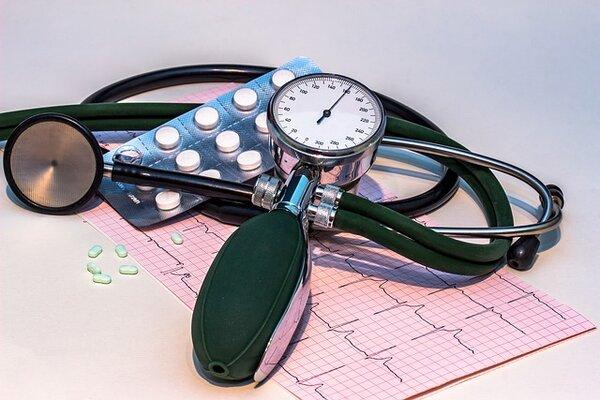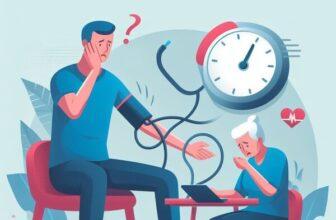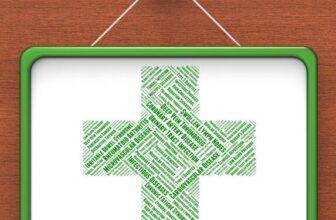
(Note: Some of the links in this post are affiliate links, and we will be compensated when you make a purchase by clicking through our links at no additional cost to you.)
High blood pressure, often referred to as hypertension, is a prevalent medical condition that affects millions of people worldwide. It’s often dubbed the “silent killer” due to its asymptomatic nature, quietly wreaking havoc on the cardiovascular system. Understanding the main causes of high blood pressure is essential for preventing and managing this condition. In this article, we will delve into the primary factors contributing to high blood pressure and shed light on ways to mitigate its effects through lifestyle changes and medical intervention.
The Complex Physiology of Blood Pressure
Before we look into the causes of high blood pressure, let’s first grasp the fundamental mechanics of blood pressure. Blood pressure is the force exerted by blood against the walls of arteries as the heart pumps it throughout the body. It’s measured in millimeters of mercury (mmHg) and is recorded as two numbers: systolic (the higher number) and diastolic (the lower number) pressure.
Primary Causes of High Blood Pressure
1. Genetics and Family History:
Genetic predisposition plays a significant role in determining an individual’s susceptibility to high blood pressure. If your parents or close relatives have a history of hypertension, you might be at a higher risk. While you can’t change your genes, being aware of your family history can prompt proactive monitoring and lifestyle adjustments.
2. Unhealthy Diet:
The food we consume has a profound impact on our health, including blood pressure. A diet high in sodium, saturated fats, and cholesterol can contribute to the development of hypertension. Excessive sodium intake disrupts the balance of electrolytes in the body, leading to fluid retention and increased pressure on the arterial walls. To combat this, adopting a balanced diet rich in fruits, vegetables, whole grains, lean proteins, and healthy fats is crucial.
>>> Read more: Discover the power of nutritious and delicious eating with the Mayo Clinic Diet’s expertly crafted meal plan. Click here.
3. Lack of Physical Activity:
Sedentary lifestyles have become increasingly common in modern society, and this lack of physical activity is closely linked to high blood pressure. Regular exercise helps maintain a healthy weight, improve cardiovascular health, and regulate blood pressure. Aim for at least 150 minutes of moderate-intensity aerobic activity or 75 minutes of vigorous-intensity activity per week.
4. Excessive Alcohol Consumption:
While moderate alcohol consumption might have some cardiovascular benefits, excessive drinking can elevate blood pressure. It’s recommended to limit alcohol intake to moderate levels – up to one drink per day for women and up to two drinks per day for men.

5. Chronic Stress:
Prolonged stress triggers the release of stress hormones like cortisol, which can constrict blood vessels and lead to elevated blood pressure. Finding healthy ways to manage stress, such as through meditation, yoga, or hobbies, can have a positive impact on blood pressure levels.
6. Tobacco Use:
Smoking or using tobacco products significantly raises the risk of high blood pressure. Chemicals in tobacco can damage the lining of blood vessels, leading to atherosclerosis (hardening of the arteries) and increased blood pressure. Quitting smoking is one of the most effective ways to improve your cardiovascular health.
7. Obesity and Excess Weight:
Carrying excess weight puts additional strain on the heart and increases the risk of hypertension. The relationship between obesity and high blood pressure is complex, involving factors like insulin resistance and inflammation. Maintaining a healthy weight through a balanced diet and regular exercise is vital for blood pressure management.
Secondary Causes of High Blood Pressure
In some cases, high blood pressure is a result of an underlying medical condition. These are known as secondary causes of hypertension. Examples include:
1. Kidney Problems:
The kidneys play a pivotal role in regulating blood pressure by controlling the balance of fluids and salts in the body. Kidney diseases can disrupt this balance, leading to elevated blood pressure.
2. Hormonal Imbalances:
Hormones like aldosterone and cortisol influence blood pressure regulation. Conditions that affect hormone production, such as Cushing’s syndrome or hyperaldosteronism, can lead to hypertension.
3. Sleep Apnea:
Sleep apnea, a disorder characterized by interrupted breathing during sleep, has been linked to high blood pressure. The episodes of oxygen deprivation cause the body to release stress hormones, subsequently raising blood pressure.

4. Thyroid Disorders:
An overactive thyroid (hyperthyroidism) or underactive thyroid (hypothyroidism) can impact metabolism and heart rate, potentially contributing to hypertension.
Managing and Preventing High Blood Pressure
While the causes of high blood pressure are multifaceted, the good news is that it’s often controllable through lifestyle modifications and, if necessary, medical intervention. Here are some effective strategies:
1. Healthy Diet:
Embrace the Dietary Approaches to Stop Hypertension (DASH) diet, which emphasizes whole foods, fruits, vegetables, lean proteins, and low-fat dairy products. Reduce sodium intake and limit processed foods and sugary beverages.
2. Regular Exercise:
Engage in regular physical activity to maintain a healthy weight and improve cardiovascular fitness. Cardiovascular exercises like brisk walking, jogging, swimming, and cycling are particularly beneficial.
3. Stress Management:
Incorporate stress-reduction techniques into your daily routine, such as deep breathing exercises, mindfulness meditation, and progressive muscle relaxation.
4. Moderate Alcohol Consumption:
If you choose to drink alcohol, do so in moderation and be aware of recommended limits.
5. Tobacco Cessation:
If you smoke, seek support and resources to quit. Quitting smoking not only improves blood pressure but also has numerous other health benefits.
6. Regular Check-ups:
Regular medical check-ups are crucial for monitoring blood pressure and detecting any potential issues early on. If you have risk factors or a family history of hypertension, it’s even more important to stay vigilant.
>>> Read more: Discover the most accurate blood pressure monitor for home use. Click here.
Conclusion
High blood pressure is a prevalent health concern with serious implications for cardiovascular health. While its causes are diverse, genetics, unhealthy lifestyle choices, and underlying medical conditions are the primary culprits. By adopting a healthy lifestyle, including a balanced diet, regular exercise, stress management, and avoidance of tobacco and excessive alcohol consumption, you can significantly reduce your risk of developing high blood pressure. Remember, knowledge is power – understanding the causes empowers you to take proactive steps toward prevention and better heart health.
>>> Read more: Say goodbye to meal prep and hello to fresh, healthy meals with Fresh N Lean’s gourmet delivery service. Click here.







